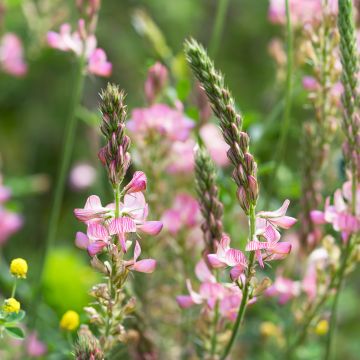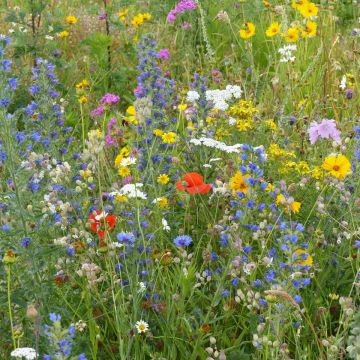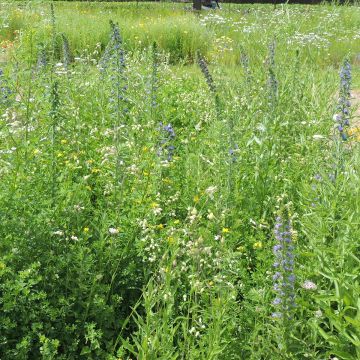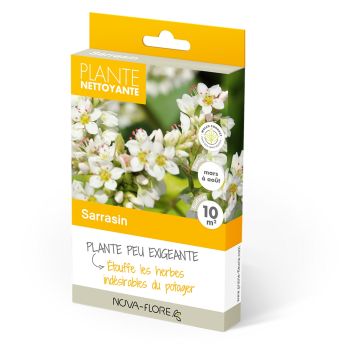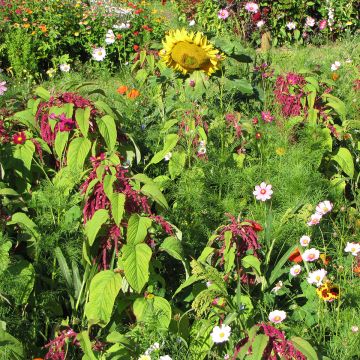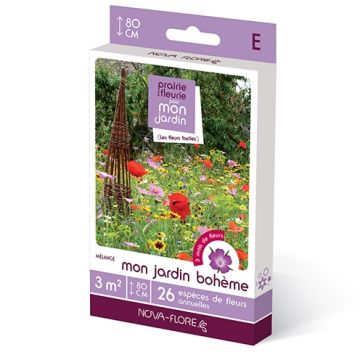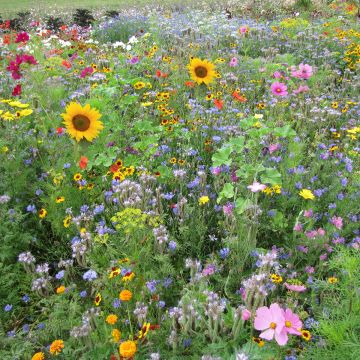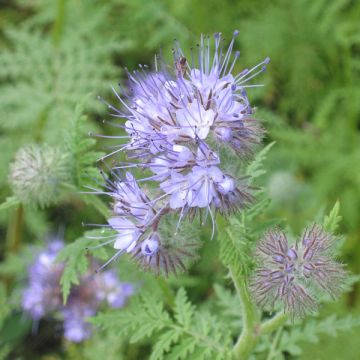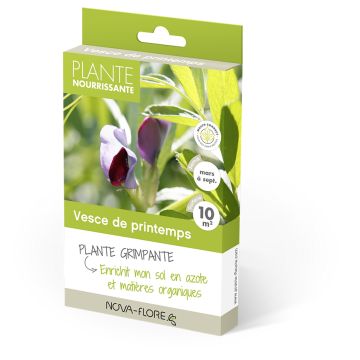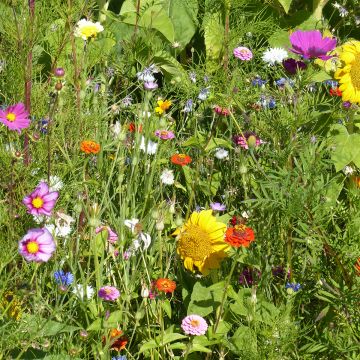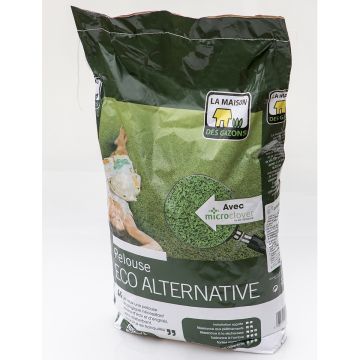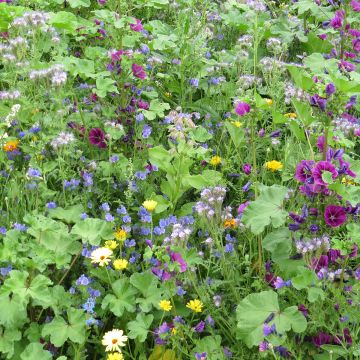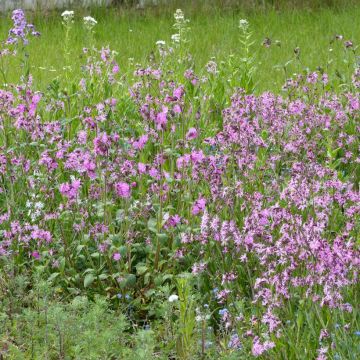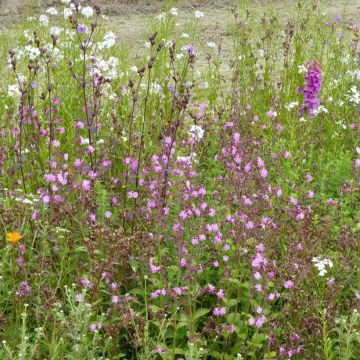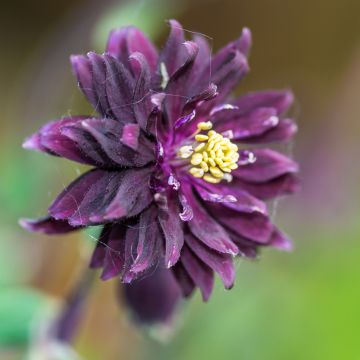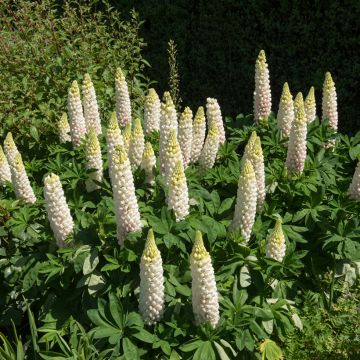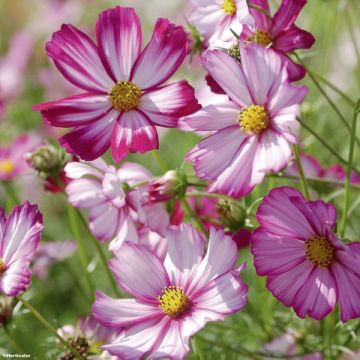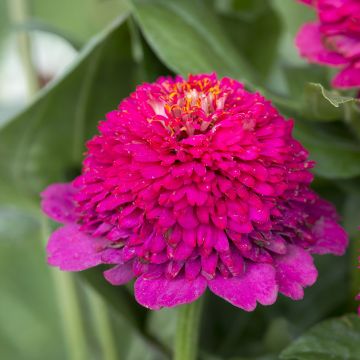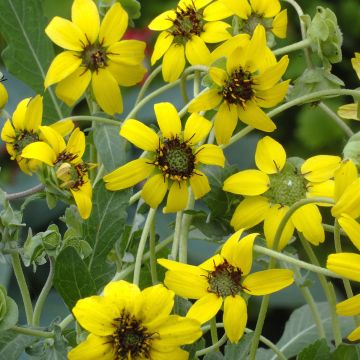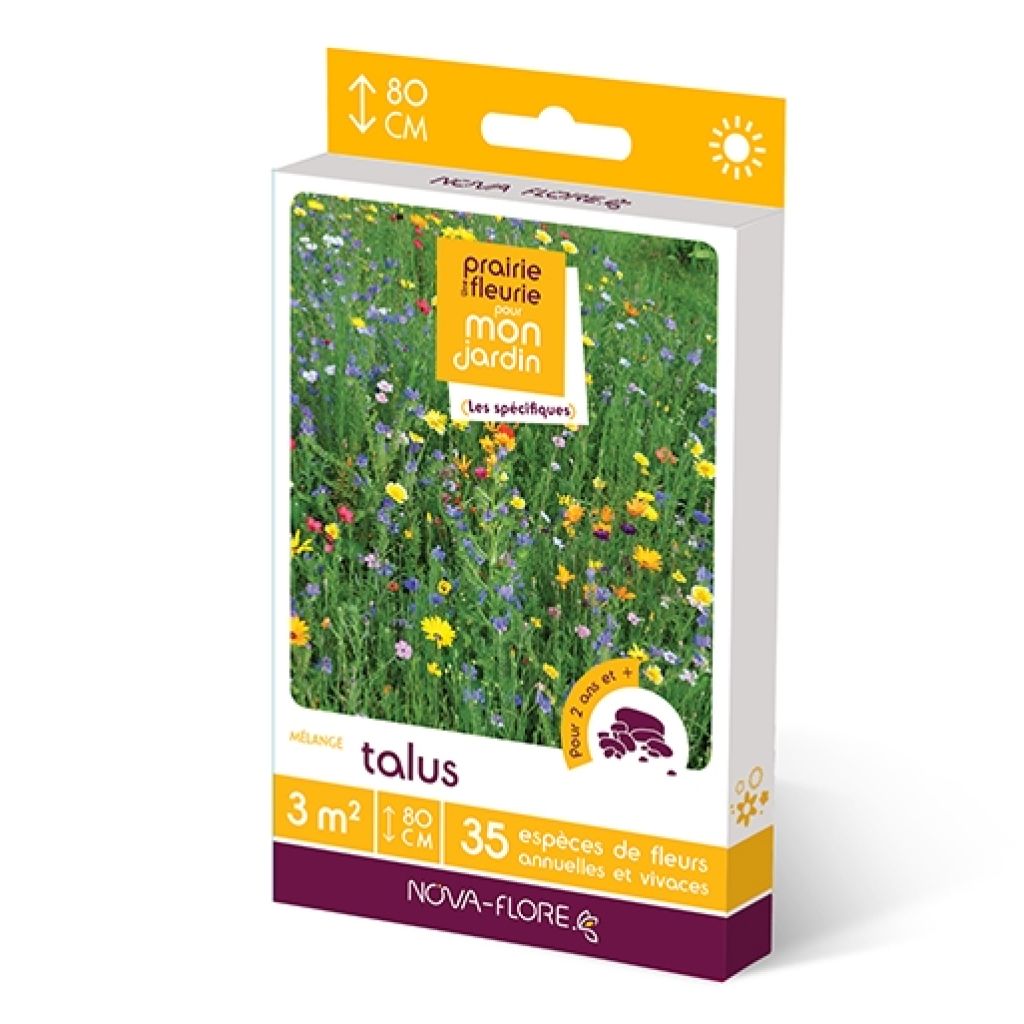

Embankment Seed Mix
Embankment Seed Mix
From my point of view, the entirety of this neck from nova-flora should be subject to more detail on its composition: 10 grams of buckwheat and 6 grams of flower mixture. It's like shampoo or liquid leached where you pay a lot for little washing product.
Romuald, 29/09/2022
Special offer!
Receive a €20 voucher for any order over €90 (excluding delivery costs, credit notes, and plastic-free options)!
1- Add your favorite plants to your cart.
2- Once you have reached €90, confirm your order (you can even choose the delivery date!).
3- As soon as your order is shipped, you will receive an email containing your voucher code, valid for 3 months (90 days).
Your voucher is unique and can only be used once, for any order with a minimum value of €20, excluding delivery costs.
Can be combined with other current offers, non-divisible and non-refundable.
Why not try an alternative variety in stock?
View all →This plant carries a 6 months recovery warranty
More information
We guarantee the quality of our plants for a full growing cycle, and will replace at our expense any plant that fails to recover under normal climatic and planting conditions.
Would this plant suit my garden?
Set up your Plantfit profile →
Description
This Meadow Mix for Slopes is a selection of specific flowers suitable for ornamenting slopes and other steep terrains, which are often quite dry, unrewarding and inconvenient to maintain. Robust, undemanding and water-efficient, they grow without care, limiting maintenance operations to mowing at the end of the season, while providing shelter and food for numerous beneficial insects. The seeds are sown directly in place, in late summer or spring, in well-prepared soil. The bed that is created will bloom for several years, from spring to summer.
This selection consists of 35 species of perennial and annual plants. Annuals bloom 6 to 8 weeks after sowing, while perennial plants, which live for several years, will bloom from the second spring onwards. All these plants show rather rapid growth and some spontaneously self-sow in the garden, in ordinary and well-drained soil. The height of flowering plants varies from 40 to 80 cm (15.7 to 31.5 in).
Partial composition: Calendula officinalis, Echium plantagineum, Chrysanthemum leucanthemum, Linum grandiflora, etc.
This meadow mix combines usefulness with pleasure: flowering throughout the entire summer season while requiring very little maintenance, it restores ecological balance and brings the charm of the countryside to the garden. Occasional watering during very dry periods will suffice to obtain numerous flowers. Invite nature into your garden: sow our flower mixes near the house, along a pathway, in a slightly neglected area of the garden, on the slope bordering a sunken path, or at the back of the garden bordering the countryside.
Report an error about the product description
Flowering
Foliage
Plant habit
Botanical data
Cultivar or hybrid
Other Fallows and meadows in flower
View all →Planting and care
Sowing:
Sow directly in place, broadcast like grass, from September to October or from March to May, in soil that has been well-prepared with a spade, cleared of weeds, refined and raked. Sow finely on the surface of the soil and lightly rake to cover the seeds. Optionally, pass the roller to ensure good adhesion of the seeds to the ground. Germination normally takes 14 to 30 days. Regularly water with a fine rain to keep the soil slightly moist until germination.
Cultivation:
When the young plants appear, water well and eliminate weeds. Water regularly. Once well established, plants generally rely on rainwater. Only water during very hot and dry periods in summer. At the end of flowering in autumn, the slope can be mowed to 10 or 20 cm (3.9 or 7.9 in) above the ground.
Sowing period
Intended location
-
, onOrder confirmed
Reply from on Promesse de fleurs
Similar products
Haven't found what you were looking for?
Hardiness is the lowest winter temperature a plant can endure without suffering serious damage or even dying. However, hardiness is affected by location (a sheltered area, such as a patio), protection (winter cover) and soil type (hardiness is improved by well-drained soil).

Photo Sharing Terms & Conditions
In order to encourage gardeners to interact and share their experiences, Promesse de fleurs offers various media enabling content to be uploaded onto its Site - in particular via the ‘Photo sharing’ module.
The User agrees to refrain from:
- Posting any content that is illegal, prejudicial, insulting, racist, inciteful to hatred, revisionist, contrary to public decency, that infringes on privacy or on the privacy rights of third parties, in particular the publicity rights of persons and goods, intellectual property rights, or the right to privacy.
- Submitting content on behalf of a third party;
- Impersonate the identity of a third party and/or publish any personal information about a third party;
In general, the User undertakes to refrain from any unethical behaviour.
All Content (in particular text, comments, files, images, photos, videos, creative works, etc.), which may be subject to property or intellectual property rights, image or other private rights, shall remain the property of the User, subject to the limited rights granted by the terms of the licence granted by Promesse de fleurs as stated below. Users are at liberty to publish or not to publish such Content on the Site, notably via the ‘Photo Sharing’ facility, and accept that this Content shall be made public and freely accessible, notably on the Internet.
Users further acknowledge, undertake to have ,and guarantee that they hold all necessary rights and permissions to publish such material on the Site, in particular with regard to the legislation in force pertaining to any privacy, property, intellectual property, image, or contractual rights, or rights of any other nature. By publishing such Content on the Site, Users acknowledge accepting full liability as publishers of the Content within the meaning of the law, and grant Promesse de fleurs, free of charge, an inclusive, worldwide licence for the said Content for the entire duration of its publication, including all reproduction, representation, up/downloading, displaying, performing, transmission, and storage rights.
Users also grant permission for their name to be linked to the Content and accept that this link may not always be made available.
By engaging in posting material, Users consent to their Content becoming automatically accessible on the Internet, in particular on other sites and/or blogs and/or web pages of the Promesse de fleurs site, including in particular social pages and the Promesse de fleurs catalogue.
Users may secure the removal of entrusted content free of charge by issuing a simple request via our contact form.
The flowering period indicated on our website applies to countries and regions located in USDA zone 8 (France, the United Kingdom, Ireland, the Netherlands, etc.)
It will vary according to where you live:
- In zones 9 to 10 (Italy, Spain, Greece, etc.), flowering will occur about 2 to 4 weeks earlier.
- In zones 6 to 7 (Germany, Poland, Slovenia, and lower mountainous regions), flowering will be delayed by 2 to 3 weeks.
- In zone 5 (Central Europe, Scandinavia), blooming will be delayed by 3 to 5 weeks.
In temperate climates, pruning of spring-flowering shrubs (forsythia, spireas, etc.) should be done just after flowering.
Pruning of summer-flowering shrubs (Indian Lilac, Perovskia, etc.) can be done in winter or spring.
In cold regions as well as with frost-sensitive plants, avoid pruning too early when severe frosts may still occur.
The planting period indicated on our website applies to countries and regions located in USDA zone 8 (France, United Kingdom, Ireland, Netherlands).
It will vary according to where you live:
- In Mediterranean zones (Marseille, Madrid, Milan, etc.), autumn and winter are the best planting periods.
- In continental zones (Strasbourg, Munich, Vienna, etc.), delay planting by 2 to 3 weeks in spring and bring it forward by 2 to 4 weeks in autumn.
- In mountainous regions (the Alps, Pyrenees, Carpathians, etc.), it is best to plant in late spring (May-June) or late summer (August-September).
The harvesting period indicated on our website applies to countries and regions in USDA zone 8 (France, England, Ireland, the Netherlands).
In colder areas (Scandinavia, Poland, Austria...) fruit and vegetable harvests are likely to be delayed by 3-4 weeks.
In warmer areas (Italy, Spain, Greece, etc.), harvesting will probably take place earlier, depending on weather conditions.
The sowing periods indicated on our website apply to countries and regions within USDA Zone 8 (France, UK, Ireland, Netherlands).
In colder areas (Scandinavia, Poland, Austria...), delay any outdoor sowing by 3-4 weeks, or sow under glass.
In warmer climes (Italy, Spain, Greece, etc.), bring outdoor sowing forward by a few weeks.






























